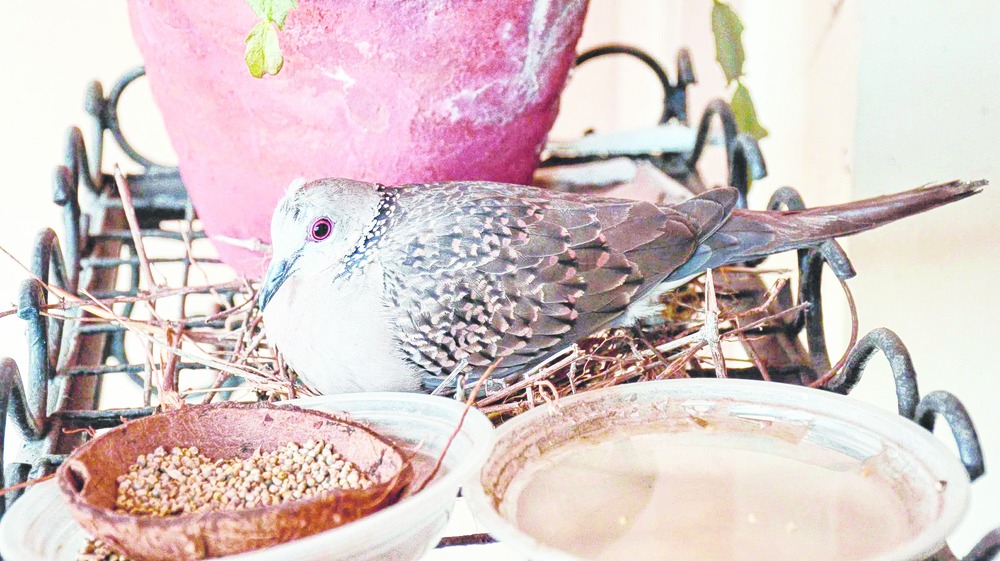
Jamshedpur's soaring Celsius, coupled with a shrinking canopy, in no small measure due to road widening across the city, has caused two of the city's favourite birds, the red-whiskered bulbul and mourning dove, to hop to small gardens at balconies of flats or homes this breeding season.
Bewildered by disappearing trees lining the streets, these semi-wild birds have made the best of a bad situation and taken to human habitats, laying eggs in green patches found in flats, company quarters and privately owned homes.
Excited about seeing red-whiskered bulbuls ( Pycnonotus jocosus) and mourning doves (Zenaida macroura) at the green balcony of her flat at Ashiana Gardens in Sonari, homemaker Jasmine Bugli said it was a unique phenomenon.
"True, we humans are responsible for changing the habitats of these birds, but I am happy they have started flocking to my small garden since March. I offer them fruits and millets. They also drink water that accumulates in my potted plants every morning. They've laid eggs now, so I keep a lookout for cats," a delighted Bugli said.
But, an expert birdwatcher feels this domestication of wild bird species is "unfortunate".
K.K. Sharma, who heads Jamshedpur Co-operative College's zoology department and is a member of the Ornithological Society of India (Jharkhand-Bihar chapter), said the change in breeding habits of the birds - around 600 pairs of red-whiskered bulbuls and 300 pairs of mourning doves currently stay here - meant that the city had lost a massive number of trees recently.
"It was great that an industrial city had so many trees that these birds had their natural, shady habitat. Now, they have lost it and are forced to breed in flat balconies," said the ornithologist.
Partially blaming the loss of trees for intense heat this summer, he said: "One change in ecology sparks off a domino effect of more changes."
As the red-whiskered bulbuls and mourning doves are forced to adapt to the changing topography and climate, they would displace other birds over the years, the avid birdwatcher explained.
"Ultimately they will become dependent on human habitats. And birds traditionally dependent on human habitats, like house sparrows, will lose out in the ensuing competition for space, food and water."










